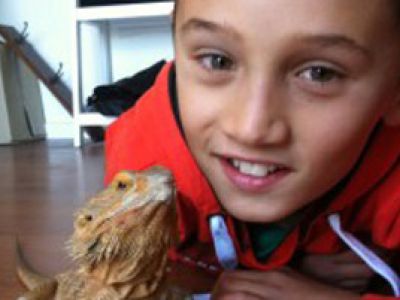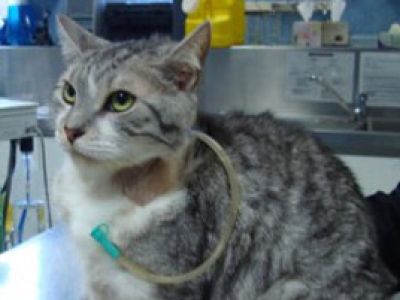Honey Chapman

Honey is a 12-year old Shih Tzu cross whose owner Helen brought her to our clinic because of increased appetite, thirst and frequent shaking and rubbing of ears.
On close examination, we noticed that Honey also appeared pot bellied with hair thinning around both flanks. This was highly suggestive of a condition called Cushing’s Disease, also known as hyperadrenocorticism. After a series of special blood tests, we were able to confirm Honey’s diagnosis.
Cushing's Disease is a condition in which the adrenal glands overproduce certain hormones, which regulate a variety of body functions and are necessary to sustain life. The most widely known of these hormones is cortisol.
The most common cause of Cushing’s Disease is a tumour of the pituitary gland. The tumour causes the pituitary to overproduce a hormone that stimulates the adrenal glands. Excessive cortisol secretion then occurs. Cushing's Disease may also be the result of a benign or malignant tumour of the adrenal gland itself, which then produces excessive cortisol.
The most common signs associated with Cushing's Disease are an increase in appetite, water consumption and urination. Lack of energy, excessive panting and a poor hair coat are also common. Many of these dogs develop a bloated appearance to their abdomen due to an increase of fat within the abdominal organs and weakening of abdominal wall muscles. Untreated Cushing’s Disease can ultimately lead to a variety of secondary conditions, such as increased blood pressure, urinary tract infections, spread of tumour to other organs and diabetes. Cushing’s Disease is extremely rare in cats.
Upon diagnosis, Honey was prescribed a daily medication called Trilostane, which acts to reduce production of cortisol from the adrenal glands. Initial monitoring blood tests showed that she responded very well to the treatment and her appetite and water intake have already started to normalise. Helen also said that Honey seems to be happier and have more energy during the day. We will continue to closely monitor Honey’s progress, as clinical response can continue to improve over the first year of treatment.
If your pet is showing similar symptoms, we would be happy to discuss this condition in more details at your next visit.



